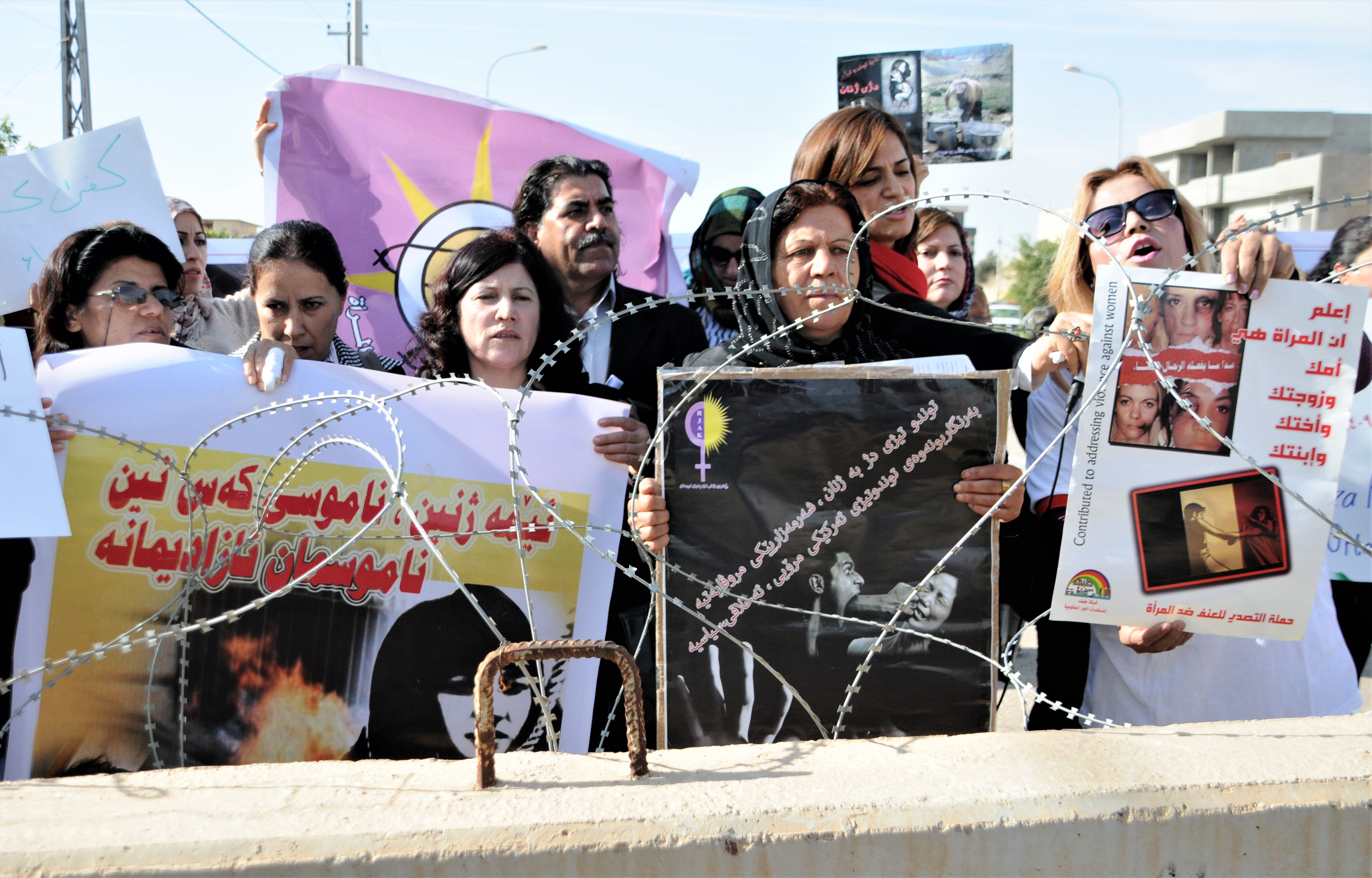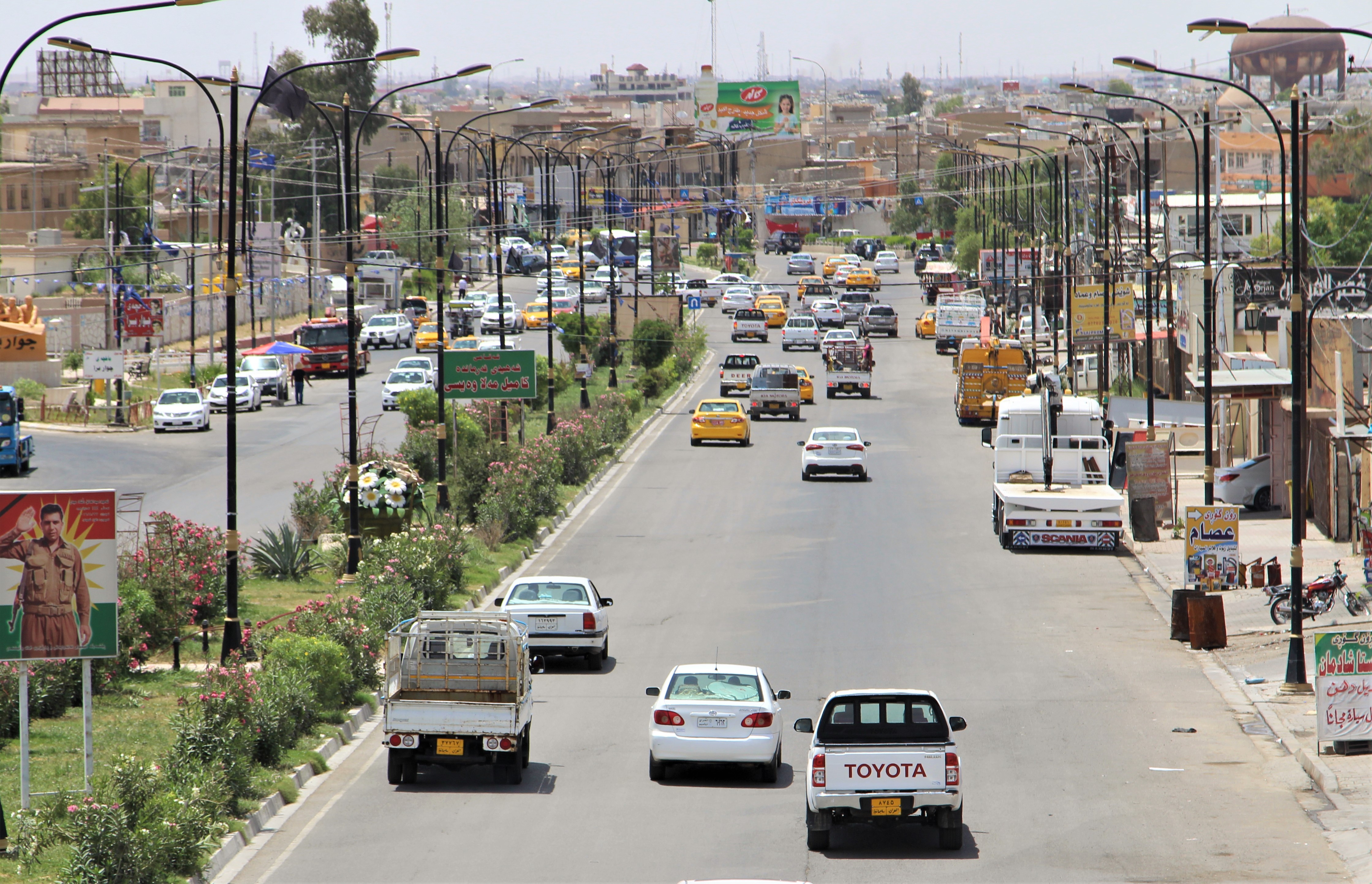Since the beginning of this year, 98 cases of "suicide" have been registered in Kirkuk northern province, most of the victim were women, showing about 50% increase compared to the last year.
According to statistics obtained by KirkukNow from the Iraqi High Commission for Human Rights IHCHR, Kirkuk witnessed 98 “suicide” cases reported and recorded, 78 of whom were females aged 20 and up.
Sajjad Jumaa, head of the Kirkuk office of IHCHR, said the number of suicides has increased this year compared to 2020."
In 2020, 65 cases of "suicide" were recorded in Kirkuk, 50 cases were females.
"Most of the suicides are between the ages of 20 and 45," said Sajjad Jumaa, who pointed out that the main reasons behind these cases are "domestic violence, psychological disorders and deteriorating living conditions."
Over several years, many Iraqi families have suffered with mental health scars caused by past conflicts and economic hostilities, World Health Organization WHO said in a story about suicide in Iraq in December 2020.
“Many communities have also faced new stay-at-home restrictions or limited movements to curb the spread of COVID-19.” Public health experts talked to WHO raised concerns about factors may increase suicide rates including social isolation, anxiety, fear of contagion, uncertainty, unemployment, chronic stress, and economic difficulties, which could worsen depression, anxiety, and substance abuse.
“Other factors include barriers to access mental health services, depression, and insomnia among populations and some health care professionals.”
Various factors could contribute to rates of suicide in Iraq, WHO found out, including intimate partner problems, physical health conditions, financial challenges, and legal issues. Others are personal or family experiences of violence, for instance, child abuse, neglect, or family history of suicide and broader community conditions, such as high crime rates and violence.

Kirkuk, 2015- Women’s rally to combat violence against women. Karwan Salihi
According to the latest statistics of the Iraqi Ministry of Interior, more than 772 "suicide" cases were recorded in Iraq, and this number is greater compared to 2020, which witnessed the registration of 663 cases, according to the semi-official Iraqi Media Network.
Some of these cases are teenager girls below 14, committed suicide because of forcible premature marriage.
In that statistic, 60% of those who "committed suicide" were males, 40% of them were married, and more than 36% of the victims were under 20 years old, compared to 32% between 20 and 30 years old.
According to the Ministry of Interior, the motives for suicide for 35% were related to psychological stress, 35% due to psychological disorders, 13% to poverty, about 10% due to unemployment, and some of them "committed suicide" due to failure in high schools and universities.
Some of these cases were girls under 14, committed suicide because they were forced to marry
Lawyer Maha Abid al-Jumaili from Kirkuk says that some of the "suicide" cases are due to drug abuse and addiction. "When they are out of money to buy drugs, they resort to suicide."
"We regret this rise in suicide rates. Some of these cases were girls under 14, committed suicide because they were forced to marry,” she added.

Kirkuk, 2020- One of the main streets in Kirkuk downtown. KirkukNow
In 2019, Kirkuk ranked first in Iraq in terms of the number of "suicide" cases with 106 cases, 89 of which were women.
According to the statistics of the Iraqi Ministry of Interior in 2019, 605 “suicide” cases were recorded throughout Iraq compared to 530 cases in 2018, and 462 cases in 2017.
The official in the IHCHR called on all government institutions and religious leaders to exert efforts to reduce suicide rates.
Samal Jabbar Bazyani, imam and preacher of the Prophet’s Mosque in Kirkuk, told (KirkukNow), “We have been through the pulpits of mosques, seminars and meetings to give advice and instructions to citizens in order to strengthen people’s love for God, and we have made it clear to them that suicide is not in the interest of anyone and is not a solution to any problem. "
"People feel despair, so they resort to suicide," Baziani stressed the need for the government to develop plans and programs to confront and reduce this phenomenon.
The escalation of suicides in Kirkuk coincides with efforts to pass a law against domestic violence, which deals with several ways to reduce domestic violence, including opening sanctuaries in all provinces. However, this law has not yet been approved by the Iraqi parliament.






